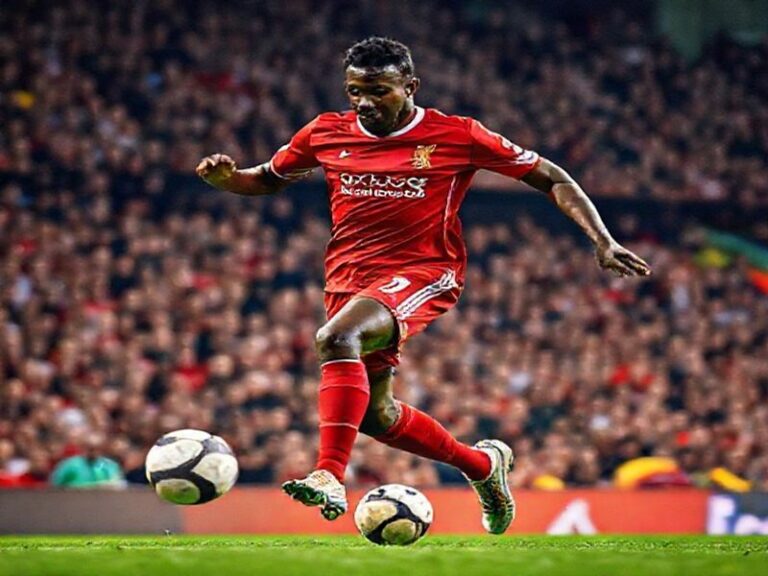Andrey Santos: How a Brazilian Teenager Became the World’s Most-Traded Daydream
Andrey Santos and the Global Assembly Line of Football Futures
By our correspondent in the departure lounge of another “next big thing”
The name Andrey Santos currently sits in football’s transfer inbox like a PDF marked “urgent—open only if you’re desperate to look visionary.” Chelsea bought him in January 2023 for a rumoured €12.5 million, loaned him to Nottingham Forest, recalled him, then loaned him to Strasbourg—because nothing says long-term planning like a ping-pong itinerary.
To the average European fan, he’s another Brazilian teenager with a highlight reel set to lo-fi hip-hop and 0.75× slow-motion. To the London hedge-fund crowd, he’s an “emerging-market intangible asset” whose depreciation curve can be finessed by creative accountants. To Fluminense supporters back in Rio, he’s the ghost who texts “miss u guys” from a boutique hotel in Alsace.
But zoom out—way out—and Santos becomes a case study in the global commodification of potential. The planet now runs on two non-negotiables: semiconductor chips and left-footed midfielders who can break lines while still legally on a learner’s permit. The supply chain for both is equally fragile, equally exploitative, and equally prone to geopolitical posturing.
Consider the pipeline: scouts prowl South American under-17 tournaments like bargain hunters at a Black Friday riot, hoovering up data with GPS vests and biometric gumshields. Clubs in Europe—especially those owned by American private-equity consortia with portfolio diversification issues—need fresh “content” for their streaming apps. Enter Andrey, stage left, passport in hand, dreams shrink-wrapped for export.
The numbers are almost adorable in their absurdity. Transfermarkt lists his market value at €20 million; Strasbourg’s entire squad cost €45 million. Somewhere in a WeWork in Palo Alto, an analyst is building a Monte Carlo simulation to decide whether loaning him to France beats parking him in the EFL Championship for “ball-progression reps.” Human capital, meet Excel.
Yet the kid can play. He captained Brazil’s U-20 side to South American glory, scoring six goals from midfield—an output that prompted the Seleção’s senior staff to mark him “for emergency injection when the midfield inevitably implodes at Copa América 2024.” If Brazil’s recent history is any guide, that implosion is scheduled for the quarter-finals, right after the anthem and before the inevitable penalty-shootout heartbreak.
Internationally, Santos is also a geopolitical pawn. Chelsea’s ownership structure ties him—however distantly—to Clearlake Capital, whose limited partners include sovereign-wealth funds from the Gulf. That makes every sideways pass in Ligue 1 a tiny act of soft-power diplomacy. Meanwhile, Nottingham Forest’s Evangelical owner once suggested football should “glorify God, not mammon,” a theological stance that lasted exactly until the next overpriced Brazilian was dangled in front of him.
The cruel irony? For all the algorithmic adoration, Santos might peak on someone else’s balance sheet. Chelsea’s midfield is currently a Jenga tower of expensively assembled but tactically incompatible parts—Enzo Fernández’s passing, Moisés Caicedo’s ball-winning, and whatever it is Conor Gallagher does when he’s not running like the Wi-Fi password depends on it. Finding minutes for a 19-year-old who still thinks pressing is something you do to elevator buttons could prove trickier than Brexit paperwork.
Still, the global show must go on. Every touch he takes in France is live-scouted by analysts from the Eredivisie, the Bundesliga, and at least one MLS side that’s convinced a Designated Player slot can turn profit into legitimacy. The circle of life, 21st-century edition: birth, viral clip, amortisation schedule, death—or at least a move to Al-Ettifaq for “lifestyle reasons.”
So here’s to Andrey Santos: the latest micro-celebrity in football’s never-ending IPO season. May his hamstrings stay elastic, his passport stamps legible, and his FFP depreciation curve gentle. And if the gods are kind, may he still recognise his childhood friends when the algorithms finally spit him back out.







